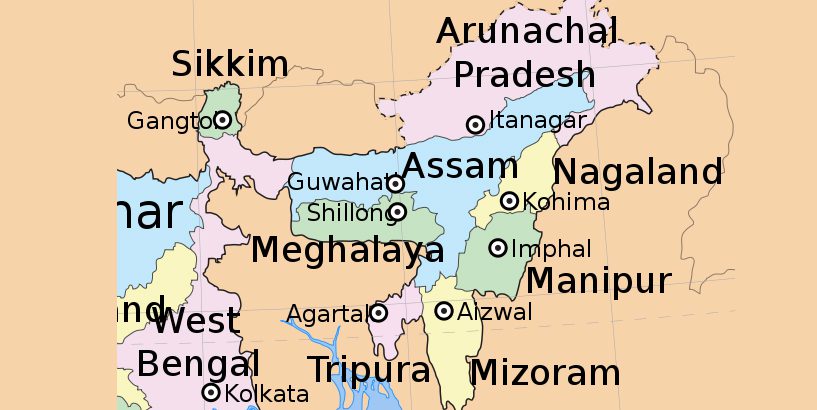The Reserve Bank of India’s (RBI) decision to cap the share of State Cooperative Banks (StCBs) for 2025-26 at 50% of the average food credit outstanding from the previous year has sent shockwaves through the cooperative banking sector, particularly in the Northeastern states.
This sharp reduction is expected to severely impact lending capacity and financial stability, making it difficult for these banks to support food procurement and rural financing.
Under the Consortium for Financing Food Procurement Operations – Fixed Shares for 2025-26, multiple state cooperative banks in the Northeast have witnessed a sharp decline in their fixed share allocations.
Assam State Cooperative Bank saw its allocation slashed from Rs 1,100 crore to Rs 510 crore, while Meghalaya State Cooperative Bank faced a cut from Rs 1,400 crore to Rs 560 crore.
Similarly, Tripura State Cooperative Bank experienced a reduction from Rs 1,800 crore to Rs 850 crore, Nagaland State Cooperative Bank saw a drop from Rs 400 crore to Rs 250 crore, and Sikkim State Cooperative Bank had its allocation shrunk from Rs 500 crore to Rs 220 crore.
The impact is not limited to the Northeast alone. Gujarat State Cooperative Bank and Chhattisgarh State Cooperative Bank also suffered major reductions, with their allocations cut from Rs 1,550 crore to Rs 800 crore and Rs 2,200 crore to Rs 660 crore, respectively.
Similarly, Himachal Pradesh State Cooperative Bank saw its share decline from Rs 3,700 crore to Rs 2,030 crore, while West Bengal State Cooperative Bank experienced a steep fall from Rs 4,700 crore to Rs 2,225 crore.
The overall allocation for 30 state cooperative banks has been revised from Rs 53,444 crore (FY 2024-25) to Rs 41,000 crore for FY 2025-26, significantly reducing the availability of funds for food credit operations. Meanwhile, the lone urban cooperative bank (UCB) – Saraswat Cooperative Bank – has been allowed to participate in the consortium for 2025-26 with a fixed share of Rs 220 crore.
However, amid widespread reductions, a few cooperative banks have seen an increase in their allocation. Andhra Pradesh State Cooperative Bank has had its limit increased from Rs 750 crore to Rs 1,100 crore, while Maharashtra State Cooperative Bank has received an enhancement from Rs 3,500 crore to Rs 5,000 crore.
This drastic reduction is likely to cause severe financial stress, particularly in regions with limited industrial and agricultural activity. With fewer avenues for loan deployment, cooperative banks will face a significant drop in interest income, weakening their profitability and Credit-Deposit (CD) ratio. Gross NPAs may surge, drawing regulatory scrutiny, while surplus funds will be difficult to redeploy, leading to distressed investments and economic instability.
The affected banks have urged NABARD and the Ministry of Cooperation to intervene and seek a revision of RBI’s decision.
They argue that small state cooperative banks already operate under challenging conditions, and such drastic reductions could cripple their ability to support rural and agricultural development.













































